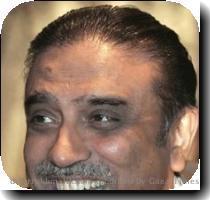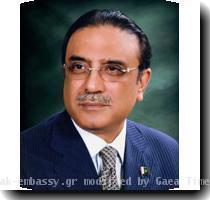Wave of political violence including beheadings in Pakistan’s largest city leaves dozens dead
By Ashraf Khan, APSunday, January 10, 2010
Wave of political killings hits southern Pakistan
KARACHI, Pakistan — Dozens of people have been killed in Pakistan’s largest city including four found Sunday — three of them headless — in a wave of targeted attacks among rival political groups that some say is aimed at destabilizing the country’s ruling coalition.
Political violence is common in Karachi, but the shootings and decapitations since Jan. 1 have terrorized parts of this teeming southern metropolis, prompting the government to send in paramilitary forces to restore order.
The political infighting comes at a time when the government is facing a raging Taliban-led insurgency that has spread to Karachi and killed more than 600 people across the country in the past three months. The growing unrest in the financial capital threatens to spark further instability.
“We have found four bodies of our party workers today,” said Faisal Sabzwari, a provincial lawmaker from the Muttahida Qaumi Movement, the strongest political party in Karachi and one dominated by the minority Mohajir ethnic group.
“Three of them were headless, and we found the heads later on,” Sabzwari told The Associated Press on Sunday.
Sabzwari blamed members of the ruling Pakistan People’s Party for fueling the violence, saying much of it was being carried out by thugs from Lyari Town, a poor area of Karachi and a PPP stronghold.
“They are the Lyari gang members and criminals who are killing our workers, and there are some elements within the ruling party who patronize them,” he said.
Qaim Ali Shah, the chief minister of Sindh province, where Karachi is the capital, and a member of the ruling party, seemed to make similar allegations against the MQM. He did not name the group directly but said “a political party” was behind the killings of its workers.
“Targeted killings are a conspiracy against the provincial government, and sacrifices of PPP workers won’t go unrewarded,” he told reporters Saturday.
Although both parties are members of the ruling coalition, they have a tense relationship and a history of conflict that dates back to the arrival of Mohajir immigrants from India after Pakistan gained independence in 1947. Native Sindhis, who mostly support the ruling party, resented the Mohajirs’ attempts to secure well-paying government jobs.
Pakistan’s Interior Ministry said Sunday that 41 people have died in targeted killings in Karachi since the beginning of the year, including 10 MQM workers, 10 from a breakaway faction called Haqiqi, and 16 members of a committee set up by the ruling party in Lyari to control violence in the area.
The five others were from a handful of political and religious groups, said the ministry’s Crisis Management Cell.
Karachi Police Chief Wasim Ahmed provided different figures and tried to play down the crisis. He said 50 people had been killed in Karachi during the first nine days of the year, but only 20 deaths were politically or ethnically motivated.
“The average killing rate is 5.5 a day, which is not alarming in a city which has a population of 18 million,” Ahmed told The AP.
But he said in a television interview Saturday that the police need political help to end the violence.
“We need cooperation from all the political parties to overcome this menace, and we appeal to them to cast off those criminal elements from their ranks who are responsible for such killings,” he told Geo TV.
British Foreign Secretary David Miliband also called for the killings to cease during a visit to Karachi on Sunday.
“I want to add my voice to that of many others who have said they want to see an end to the political violence immediately,” Miliband told reporters after visiting the mausoleum of Pakistan’s founder, Mohammed Ali Jinnah.
Targeted killings in Karachi rose from 86 in 2008 to 152 in 2009, according to the Interior Ministry.
“It’s a complex situation and many forces seem to be working behind these killings,” Tauseef Ahmed Khan, a professor at the Federal Urdu University in Karachi, said about the murders so far this year.
He speculated state security forces could be playing a role in an effort to weaken the ruling party. President Asif Ali Zardari, who is also co-chairman of the PPP, has had a tense relationship with the country’s military.
“It seems that the establishment desires to break the MQM-PPP coalition to weaken the government,” said Khan.
Interior Minister Rehman Malik echoed this accusation during a visit to Karachi on Friday, saying “these killings are the handiwork of those who want to undermine the PPP-MQM coalition and destabilize the country.”
Tags: As-pakistan, Asia, Asif Ali Zardari, Karachi, Pakistan, Political Organizations, Race And Ethnicity, South Asia

